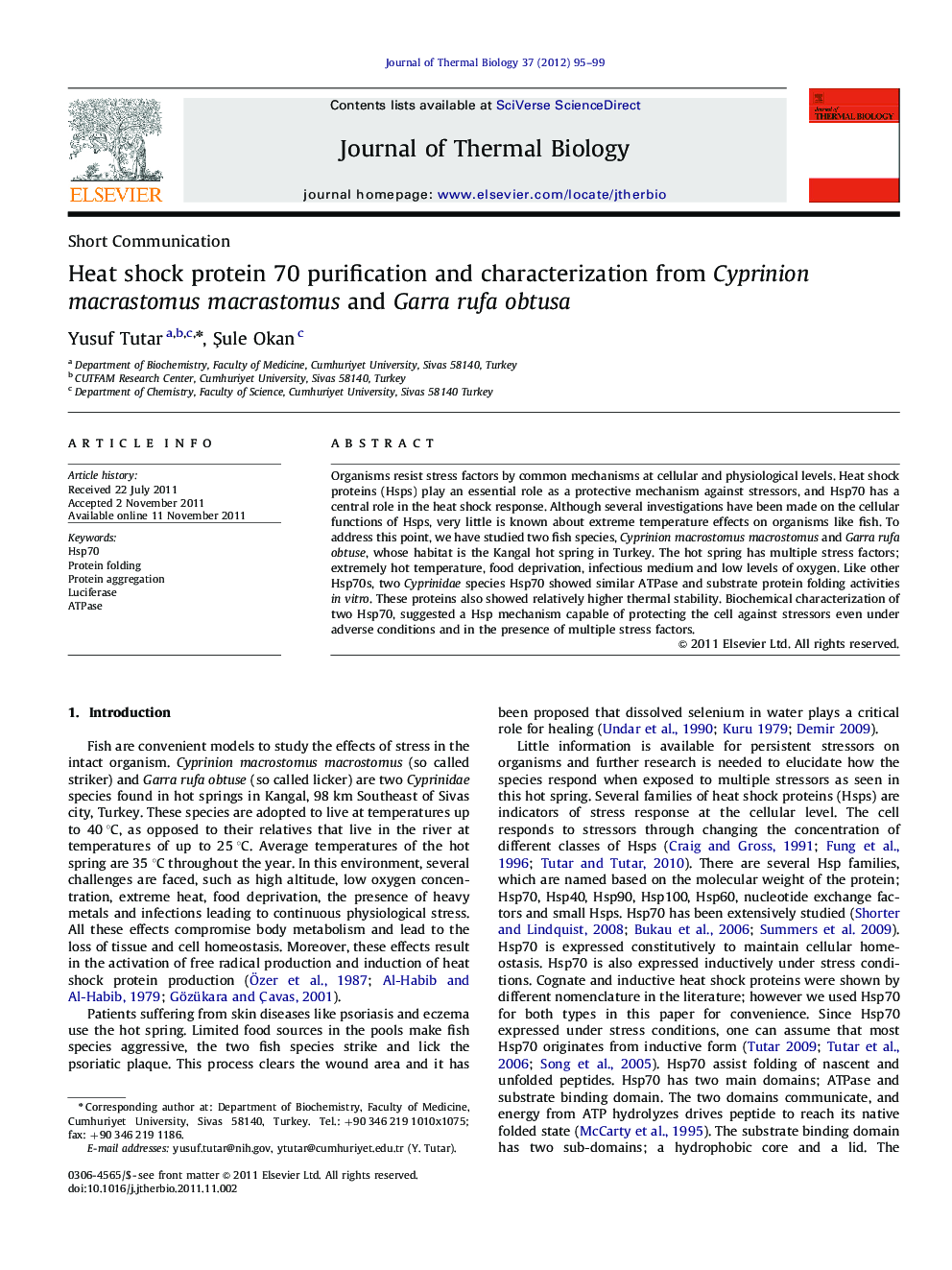| Article ID | Journal | Published Year | Pages | File Type |
|---|---|---|---|---|
| 2843216 | Journal of Thermal Biology | 2012 | 5 Pages |
Organisms resist stress factors by common mechanisms at cellular and physiological levels. Heat shock proteins (Hsps) play an essential role as a protective mechanism against stressors, and Hsp70 has a central role in the heat shock response. Although several investigations have been made on the cellular functions of Hsps, very little is known about extreme temperature effects on organisms like fish. To address this point, we have studied two fish species, Cyprinion macrostomus macrostomus and Garra rufa obtuse, whose habitat is the Kangal hot spring in Turkey. The hot spring has multiple stress factors; extremely hot temperature, food deprivation, infectious medium and low levels of oxygen. Like other Hsp70s, two Cyprinidae species Hsp70 showed similar ATPase and substrate protein folding activities in vitro. These proteins also showed relatively higher thermal stability. Biochemical characterization of two Hsp70, suggested a Hsp mechanism capable of protecting the cell against stressors even under adverse conditions and in the presence of multiple stress factors.
► Protective role of Heat shock protein 70 (Hsp70) has been investigated on two fish species whose habitat is Kangal hot spring. ► The proteins biochemical properties, substrate peptide folding and ATP hydrolysis rates, at adverse conditions were studied. ► Hsp70s in the fish species are thermal adaptation to this hostile environment. ► Thermal responses can be used as starting point for the studies of stressed states of organisms that live under extreme conditions.
